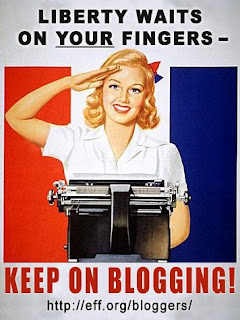
But the National Assembly for Wales in Cardiff Bay has been the scene of a quiet revolution. The young legislature hosts a membership that is challenging the traditional perception of politicians; 20% of Assembly Members are under the age of forty. That figure itself isn’t that remarkable, nor is it that different compared to Westminster, but the impact that these young AM’s have had is far more significant.
In December Kirsty Williams was elected as leader of the Welsh Liberal Democrats, at the ripe old age of 37. Carwyn Jones, the man widely tipped to take over as First Minister this year, is 41. There is speculation of a leadership coup within the Welsh Conservatives led by Darren Millar and Jonathan Morgan, 32 and 34 respectively. Two of Plaid Cymru’s most prominent AM’s Bethan Jenkins and Nerys Evans are 27 and 28 years old.
This has made me wonder whether the prominence of young AMs in Wales has changed attitudes. Do people in Wales see politics as a career rather than a vocation?
The danger with younger people in elected office is the perception that they are simply there to climb the ladder of power as fast as they can. Fresh out of University they will work for a political party, live and breathe local politics and before they know it, they will be standing for elected office.
 But Dominic Hannigan says that isn’t necessarily the case. A 25 year-old Liberal Democrat party worker, Dominic stood in the 2005 Assembly election for the Cardiff South and Penarth constituency; he is now a Liberal Democrat prospective parliamentary candidate.
But Dominic Hannigan says that isn’t necessarily the case. A 25 year-old Liberal Democrat party worker, Dominic stood in the 2005 Assembly election for the Cardiff South and Penarth constituency; he is now a Liberal Democrat prospective parliamentary candidate.He believes that having less ‘life experience’ doesn’t mean that young people can’t be effective politicians, besides what constitutes life experience anyway? Dominic believes that being a good politician is all about the person, their ideals, beliefs and personal skills.
But why are there so many down the bay? Is there something in the water here that makes us all want to become politicians? The Cardiff political scene is a youthful one, with a lot of young activists, councillors and political support staff; it seems that this community is attracting other young people down to the Senedd. The electoral system here in Wales is also having an impact, because it works on a system of proportional representation; this means that some AMs are not elected directly but chosen from a central list. Parties use these lists to try and boost diversity in the chamber, and so most of the younger members are elected thanks to the list system.

Dominic Hannigan thinks that the Welsh Assembly is doing quite a good job of being youthful, but feels that more can be done, and by looking at the positions of power, we see that he may have a point. The Assembly Cabinet, which holds most of the decision making power of the institution, is full of your archetypal stiff politicians.

Having spent hours in and around the Assembly I can’t help noticing the hordes of young support workers milling around. I also can’t help feeling that they all harbour hopes of one day becoming an elected official. But does this really matter? As long as our politicians are there because they want to make a difference to society, surely it can’t matter if they're 17 or 87? And yes there will be the odd one with no social skills but a first in political science; equally there will be someone with a wealth of life experience who can’t construct a coherent sentence.
The quiet revolution is set to continue... what impact it will have is still unclear.
Steffan
Here's my interview with Dominic Hannigan:
Here's a Google Map of the under 40 AMs
View Larger Map
Hwyl Fawr





